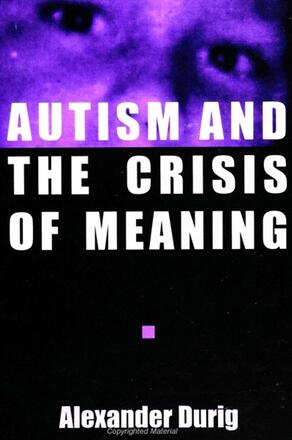
Autism and the Crisis of Meaning
Alternative formats available from:
Provides a comprehensive understanding of the informal logics of meaningful perception and autistic perception, which promises to pave the way for social scientists to begin addressing the subjective human experience in logical terms.
Description
Autism and the Crisis of Meaning presents a systematic way of understanding the logic of meaningful perception in everyday life. Working from concepts of formal logic and logical inference, the author suggests that informal logics of social inferencing may address part of the way we organize our perceptions in social life. By discussing the way our social inferencing reflects inductive, deductive, and abductive logics, the social inferencing theory of meaningful perception is shown to entail a theory of autistic perception.
Durig shows that everyday meaningful perception may be organized largely by a balanced ratio of inductive to deductive logics, and that autistic perception is comprised of significantly higher levels of deductive social inferencing relative to inductive social inferencing. This perception theory is capable of addressing the five core behaviors associated with autism. By presenting meaningful perception and autistic perception in terms of ratios of social inferencing, Durig introduces a concept of slight autism: an individual may have normative inductive social inferencing, and super deductive social inferencing, thus accounting for a highly intelligent person who nevertheless has difficulty expressing themselves in formal social situations.
Alexander Durig Assistant Professor of Sociology at California State University, San Marcos.
Reviews
"The experience of persons with autism is analyzed using a symbolic interactionist framework (with a twist) and the results of this theoretical analysis are used to help us understand the 'crisis of meaning' within contemporary society. The book is written in a style which is very often engaging and provocative. " -- Matthew Johnsen, Cecil Sheps Center for Health Services Research, University of North Carolina at Chapel Hill
"The author has explored a topic that has hitherto remained neglected among students of phenomenological and social psychology. Employing these perspectives and combining them with his knowledge of cognitive science, the author utilizes the situation of the autistic person to throw light on the workings of the human mind. In addition to providing a deeper understanding of autism, the author has shown how the study of autistic behavior yields insights about ordinary behavior in everyday life. "—Stanford M. Lyman, Florida Atlantic University